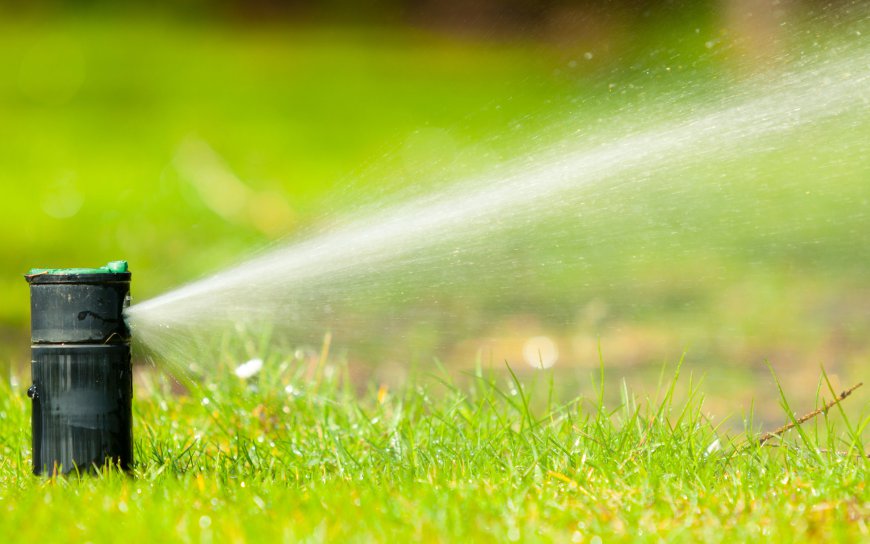Sprinkler Repair: A Complete Guide to Fixing and Maintaining Your System
Sprinkler repair involves fixing common issues like clogged sprinkler heads, broken pipes, leaks, and malfunctioning valves to ensure your irrigation system runs efficiently. Timely repairs prevent water waste, uneven watering, and damage to your lawn or garden, helping maintain a healthy and lush landscape. Regular maintenance and inspections can also prolong the life of your sprinkler system and avoid costly future repairs.

Understanding the Importance of Sprinkler Repair
What is a Sprinkler System?
A sprinkler system is an automated system designed to distribute water across your lawn and garden. By connecting to your home's water supply, it ensures consistent watering to keep your plants healthy.
Components of a Sprinkler System
Sprinkler systems have several key components, including:
- Sprinkler heads
- Pipes
- Valves
- Control box (for automated systems)
Each part plays a critical role in ensuring the system functions effectively.
Types of Sprinkler Systems
There are different types of sprinkler systems available, such as:
- Pop-up sprinklers: Installed underground, they pop up when in use.
- Rotary sprinklers: Disperse water in a rotating motion, covering large areas.
- Drip systems: These water plants slowly and directly, ideal for garden beds.
Why Regular Sprinkler Maintenance is Crucial
Regular maintenance of your sprinkler system isn't just about keeping it working. It also ensures that your lawn receives the right amount of water without wasting resources.
Prevent Water Waste
A well-maintained system reduces water waste caused by leaks, broken heads, or poor water distribution.
Maintain Lawn Health
Your lawn needs consistent watering to thrive. A faulty sprinkler system can leave patches of your lawn dry, leading to brown spots or dead grass.
Save on Utility Bills
An efficient sprinkler system helps you save on water costs. By avoiding over-watering, you can reduce your water bill while still keeping your yard healthy.
Common Sprinkler Issues
Clogged or Broken Sprinkler Heads
One of the most frequent problems is clogged or broken sprinkler heads. Dirt, debris, or damage can affect how water is distributed across your lawn.
Symptoms of a Clogged Sprinkler Head
You may notice uneven watering patterns, weak water flow, or water spraying in odd directions.
How to Fix a Clogged or Broken Sprinkler Head
Start by turning off the water supply. Remove the sprinkler head and clean any debris from the nozzle. If the head is damaged, replace it with a new one.
Low Water Pressure
Low water pressure can severely impact your sprinkler system's performance.
Causes of Low Water Pressure
Common causes include clogged pipes, a faulty pressure regulator, or leaks in the system.
Solutions for Low Water Pressure in Sprinklers
Check for clogs in the pipes and clean them. If the pressure regulator is faulty, it may need replacement. Leaks should also be fixed immediately to restore proper water flow.
Leaking Sprinkler Valves
Leaking valves are another common issue. These leaks can waste water and reduce the efficiency of your system.
Identifying a Leaking Valve
You may spot water pooling around the valve or notice wet patches on your lawn.
Steps to Repair a Leaking Sprinkler Valve
First, turn off the water supply. Open the valve box and locate the faulty valve. Tighten any loose fittings or replace the damaged parts.
Tools Needed for Sprinkler Repair
Basic Tools for DIY Repairs
You don't need fancy tools to fix most sprinkler issues. Basic items will usually suffice.
Shovel and Trowel
These are useful for digging around pipes and sprinkler heads.
Pliers and Wrenches
You'll need these to loosen and tighten fittings and connections.
Specialized Tools for Advanced Repairs
Some repairs might require specialized tools, especially for more complex fixes.
Pipe Cutters
These are essential for cutting PVC pipes when replacing damaged sections.
Wire Strippers
If you're dealing with electrical issues, wire strippers will help you handle any necessary rewiring.
Step-by-Step Guide to Sprinkler Repair
Step 1: Turn Off the Water Supply
Before beginning any repairs, shut off the water to prevent flooding or further damage.
Step 2: Inspect the System
Take a thorough look at the entire system to identify any issues, such as leaks, broken heads, or pipe damage.
Step 3: Replace or Clean Sprinkler Heads
If you find clogged or damaged sprinkler heads, clean or replace them as needed.
Step 4: Fix Broken Pipes or Valves
Broken pipes or valves should be repaired or replaced. You may need to dig to access underground pipes.
Step 5: Test the System
Once you've completed your repairs, turn the water back on and test the system to ensure everything is working properly.
When to Call a Professional
Some sprinkler issues may be too complex to handle on your own.
Complex Electrical Issues
If the system's wiring is damaged or you suspect electrical issues, it's best to call a professional.
Extensive Pipe Damage
Significant damage to the pipes, especially if underground, might require the help of an expert.
Preventive Maintenance Tips for Sprinklers
Schedule Regular Inspections
To avoid major problems, inspect your system regularly for signs of wear and tear.
Adjust Sprinkler Heads for Optimal Coverage
Check your sprinkler heads periodically to ensure they're covering the right areas and not wasting water.
Conclusion
Maintaining your sprinkler system is essential for a healthy lawn and garden. With the right knowledge and tools, you can handle many common repairs on your own. However, don't hesitate to call a professional for more complicated issues. By staying proactive with maintenance with sprinkle repair, you'll save money and enjoy a lush landscape year-round.

 AhmerSeo
AhmerSeo